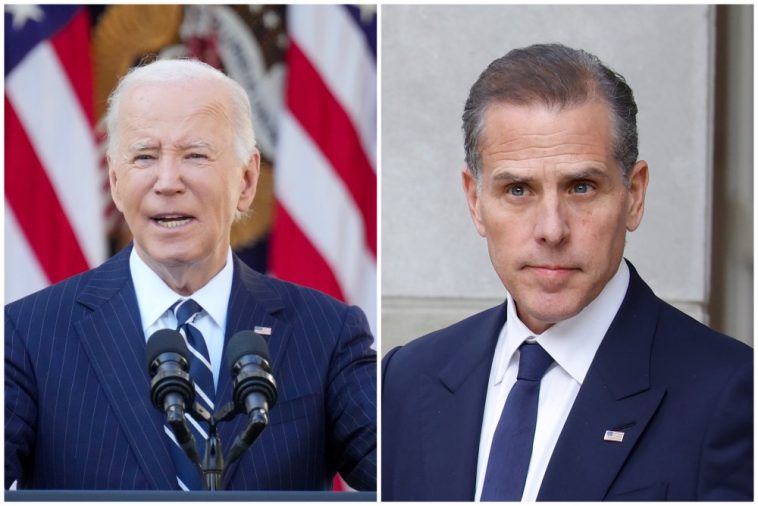In the twilight hours of his term, Joe Biden took preemptive action to shield several individuals from potential partisan prosecutions through the broad issuance of pardons. This approach was seen as a countermeasures against any potential actions from the subsequent Trump administration. Among those who benefited from this protective measure were James Biden, Biden’s own sibling, as well as Anthony Fauci, the well-known public health authority. High-profile Trump detractor, Gen. Mark Milley, along with members and witnesses of the January 6th committee, such as Liz Cheney, Adam Schiff, and retired law officer Michael Fanone, were also listed among the pardon recipients.
These pardons serve as an absolute shield from punishment for any purported federal offenses. However, Biden was keen to emphasize, in his view, these individuals weren’t involved in any criminal activities to begin with. An interesting question that arises in this context is whether such executive pardons are revocable. The straightforward answer, supported by the Constitution and federal law, is no, presidential pardons, once granted and finalized, are irrevocable.
The president’s authority to grant pardons for federal offenses is vast, according to the Constitution. Neither the Constitution nor any federal law provides the means for anyone to retract a presidential pardon once it has been given. However, a slight ambiguity revolves around when a pardon can be considered as ‘fully issued’, a state prior to which it might still be subject to cancellation.
This nuance was brought to the fore back in 1869 when incumbent president Andrew Johnson’s outgoing pardon was sought to be overturned by the succeeding president, Ulysses S. Grant. A federal judge presiding over the matter noted that ‘when a pardon is complete, there is no power to revoke it, any more than there is power to revoke any other completed act’. But, what certifies a pardon as ‘complete’ remained as a compelling question.
The judge, providing further clarification, stated that a pardon achieves its ‘completed’ status upon its actual delivery to the person intended to receive it, or to someone who can legally accept it on their behalf. In the case at hand, the pardoned message was still in transit via several messengers and hadn’t yet reached the intended recipient. Hence, the judge deemed it was not ‘complete’, and therefore could be annulled.
More recent implementation of this precedent took place in 2008 under President George W. Bush’s administration. During the final stages of his term, President Bush granted a pardon to a property developer who had previously admitted to fraudulent activities. However, upon discovery that the developer’s father had been a generous patron of Republican campaigns, Bush was quick to retract the pardon to avoid any suggestion of impropriety.
News reports from that period revealed that the Justice Department under Bush argued for the acceptability of the pardon’s retraction. This was based on the belief that the recipient hadn’t been officially notified about the president’s decision, thus implying that finality had not yet been achieved in the pardon process. This indicates that, as per existing law, a pardon, once officially delivered, is irreversible.
As long as President Biden ensured these pardons were formally delivered, their revocation is not possible under the current law. The move was unique, demonstrating an effort to safeguard those who may have been targeted due to political motivations. The pardons issued by Biden are yet another example of the extent and power of a president’s prerogative vis-à-vis federal offenses.


